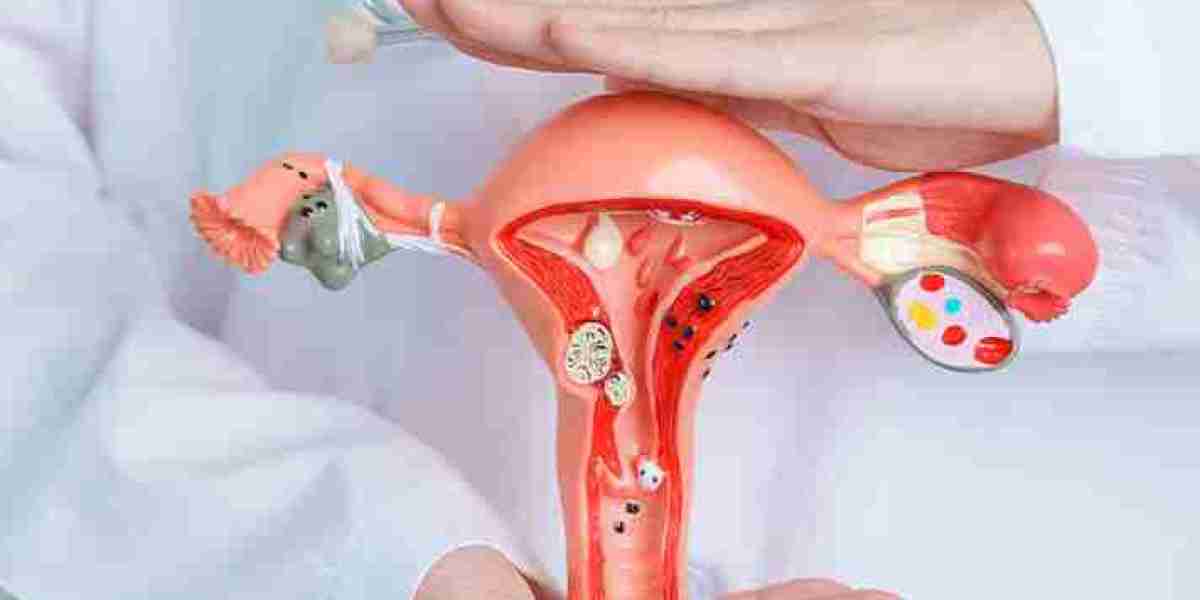Perimenopause is a natural transitional phase in a woman's life that signals the beginning of the end of reproductive years. If you’ve found yourself asking, what is perimenopause and how long does it last?, you’re not alone. This stage, often misunderstood or mistaken for early General Gynecology Treatment(علاج أمراض النساء العامة) menopause, typically begins in a woman’s 40s but can start as early as the mid-30s. Hormonal fluctuations, especially changes in estrogen levels, are the hallmark of perimenopause, which can span several years and affect every aspect of physical, emotional, and reproductive health.
Why Understanding Perimenopause Matters?
Recognizing perimenopause is essential for managing symptoms, staying healthy, and maintaining quality of life. This phase doesn’t mark the end of fertility immediately, but it does signify that changes in hormone production are underway. Awareness of this transition can empower women to seek guidance, manage symptoms, and prepare for menopause—defined as the point when menstrual periods have ceased for 12 consecutive months.
Recognizable Signs of Perimenopause:
Perimenopause presents differently for each woman, but there are several common signs and symptoms to look out for:
Irregular periods: Cycles may become shorter, longer, heavier, or lighter.
Hot flashes and night sweats: Sudden feelings of warmth, often intense and uncomfortable.
Mood swings and irritability: Hormonal changes may influence emotional well-being.
Sleep disturbances: Difficulty falling or staying asleep becomes more common.
Vaginal dryness: Decreased estrogen levels can affect vaginal lubrication and elasticity.
Lower libido: A reduced interest in sexual activity may be experienced.
Memory lapses or “brain fog”: Difficulty concentrating or forgetfulness may emerge.
These symptoms can appear gradually or suddenly, and not all women experience them with the same intensity.
Duration of Perimenopause:
So, how long does perimenopause last? The duration varies significantly from one woman to another. On average, perimenopause lasts about 4 to 8 years. However, some may experience it for a shorter period, while others may go through symptoms for a decade or more. The transition ends with menopause, when the ovaries have stopped releasing eggs and menstruation has ceased for one full year. Factors that can influence how long perimenopause lasts include genetics, lifestyle, smoking habits, and overall health.
Potential Risks During Perimenopause:
Perimenopause is a natural biological process, but it’s not without its risks. Hormonal changes during this phase can increase susceptibility to various health concerns:
Bone density loss: Decreased estrogen can lead to thinning bones, raising the risk of osteoporosis.
Cardiovascular issues: Changes in cholesterol levels and blood pressure may increase the risk of heart disease.
Weight gain: Slower metabolism and hormonal imbalances may contribute to unwanted weight gain.
Mood disorders: Women with a history of depression may see a recurrence or worsening of symptoms during this time.
While these risks don't affect every woman, awareness and preventive measures are essential for long-term health.
Benefits of Addressing Perimenopause Early:
Tuning into your body’s changes during perimenopause brings several benefits:
Symptom management: Recognizing early signs helps in adopting strategies to ease discomfort and maintain daily function.
Health monitoring: Regular check-ups can catch early signs of osteoporosis, heart disease, or hormonal imbalances.
Lifestyle improvements: Dietary changes, physical activity, and stress reduction techniques can improve symptoms and overall well-being.
Emotional support: Knowing you’re not alone can provide psychological relief and promote seeking support from others experiencing the same.
Proactive steps during perimenopause can set the stage for a smoother transition into menopause and healthier aging.
Frequently Asked Questions About Perimenopause:
1. Is perimenopause the same as menopause?
No, perimenopause is the transitional period leading up to menopause. Menopause begins once a woman has not had a menstrual period for 12 consecutive months.
2. Can I get pregnant during perimenopause?
Yes, it’s still possible to conceive during perimenopause, although fertility declines. Birth control may still be necessary if pregnancy is not desired.
3. At what age does perimenopause typically start?
Perimenopause often begins in the early to mid-40s but can start as early as the late 30s. Genetics and lifestyle factors play a role in its onset.
4. What helps relieve perimenopausal symptoms?
Lifestyle changes like regular exercise, a balanced diet, adequate sleep, stress management, and symptom-specific treatments can all help manage perimenopausal discomfort.
5. Do symptoms go away after menopause?
Many symptoms improve after menopause, especially hot flashes and menstrual irregularities. However, some issues like vaginal dryness or bone density concerns may persist without management.
Conclusion:
Understanding what General Gynecology(أمراض النساء العامة) perimenopause is and how long it lasts empowers women to navigate this significant life transition with confidence and clarity. With symptoms ranging from irregular periods and hot flashes to mood changes and sleep disturbances, perimenopause can be challenging—but it doesn’t have to be overwhelming. Recognizing the importance of this phase, knowing the potential risks, embracing the benefits of early attention, and staying informed through frequently asked questions allows for a proactive approach. By listening to your body and prioritizing your health, the perimenopausal journey can be a stepping stone toward greater wellness and self-awareness in the years ahead.



